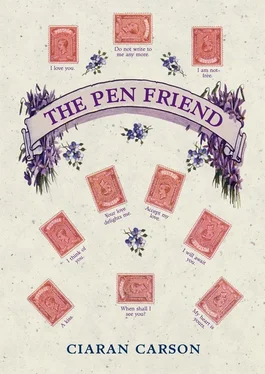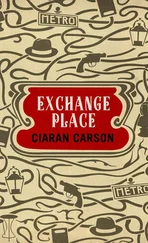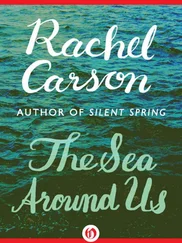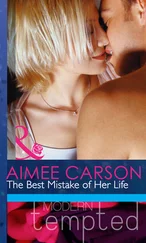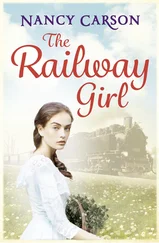I say this now, Nina, knowing how I judged you, you whom I once thought wholly guilty, and yet I still don’t know who you are, Nina, and that is why I still love you. I know I might have pictured you wrongly in the past, and you must forgive me for trying to picture what you might have become, imagining what experiences have lined your face, and where, whether the creases in the forehead, the wrinkles at the corners of the eyes and mouth, what weight you might have put on, and how it might suit you. I need to hold on to some picture of you, even as I know I might be wrong. And when sometimes, leafing through a history of costume or a vintage fashion magazine, I picture you in this outfit or that, dressing you like a doll in eighteenth-century petticoats and flounces, or in an elaborate Japanese kimono, or a 1920s coat and dress ensemble of Art Deco printed silk, you must forgive me for that too, as you must forgive me for sometimes picturing you naked, for you must have known in advance that such thoughts would occur to me, and you must have allowed for that, when you entered into correspondence with me again, with your full knowledge and complete consent, just three months ago, though it seems a lifetime. I think we should spend some time away from each other, you said, the second-last time we met face to face. It was June 1984. We’d just come back from a weekend in London where we’d quarrelled endlessly, you remember, it began when we went to the National Gallery, I expressly wanted to look again at Titian’s The Death of Actaeon , a painting I’d always loved. The narrative that lies behind the picture, as I recounted it to you, is Ovid’s Metamorphoses .
Ovid begins by telling the outcome of the story first, as if assuming it to be already familiar to his audience — this is the story of Actaeon, he says, upon whose brow strange horns appeared, and whose dogs greedily lapped their master’s blood. And if you look for the truth of the matter, you will find it in the fault of fortune, and not in any crime of his, says Ovid. Anyway, Actaeon and his comrades have been hunting since dawn. It’s high noon, and their nets are dripping with their quarry’s blood, says Ovid, so they call it a day.
Then he cuts to another scene, to a beautiful grotto with a stream, and a waterfall, where Diana, the goddess of the woods, is wont to bathe after hunting. On this particular day she’s just come back from the chase, and she lets herself be divested by her nymphs of her robe, her spear, her quiver, and her unstrung bow. And while the nymphs are pouring water over her naked body from big Grecian urns, Actaeon has lost his way, wandering through the unfamiliar woods with unsure footsteps, as Ovid has it. And he enters the grotto, covered in spray from the waterfall, whereupon the nymphs begin to beat their breasts and scream at the sight of him, and they crowd around Diana, trying to hide her body with their own, but Diana stands head and shoulders above them, and her cheeks are as red as the rosy dawn as she stands in full view without her robes. And not having her bow and arrow to hand, she dips her hand into the stream, and throws water into Actaeon’s face, and says to him, Now you can tell everybody that you saw Diana naked — if you can tell.
And, though he doesn’t know it yet, horns begin to sprout on Actaeon’s head, his arms become legs, and his hands feet, his clothes and his skin turn into a spotted hide. Then she puts fear into his heart, and he begins to run, wondering why he has become so swift of foot. And then he sees himself reflected in a pool, he sees the stag’s head, and the horns, and he tries to speak, but all that comes out is a groan. What can he do now? For though he’s got the body of a stag, he’s still got the mind of a man, and he’s thinking, I can’t very well go back to my palace now, I’d be too ashamed, but then again, I’d be very afraid if I stayed out here in the woods. So he’s standing there dithering when his sees his dogs running towards him — Ovid’s got these great names for the dogs, Nina, I said, like Hunter, Fury, Barker, Growler, Gazelle, Catcher, Gnasher, Spot, Runner, Soot, Whirlwind, Wolf, and so on — and he starts to run, the whole pack chasing him, and he wants to cry out, I’m Actaeon, I’m your master! but no words will come, and then the lead dog sinks his teeth into his shoulder, and the rest of the pack pours onto him, tearing at him till his whole body is one great wound, and the worst thing is, his comrades have got wind of what’s going on, they catch up with the dogs and urge them on, all the time shouting for Actaeon, and complaining that he’s missing all the action, and Actaeon lets a groan out of him, not quite a human cry, not quite the cry of a deer, and then he dies.
There was a lot of debate after the event, says Ovid, some saying that Diana was more cruel than she was just, others saying that when it comes to defending one’s virginity, strong measures are needed; and both sides had their arguments well marshalled. But as for Ovid himself, he says the whole thing was just an unfortunate accident, that Actaeon was just in the wrong place at the wrong time, I said.
And what do you think, Angel? you said. Oh, I don’t know, I said, but it would seem that the gods, or the goddesses, have as little control over circumstances as human beings, and as little control over their passions. I prefer to look at the painting, I said. By now we were standing before Titian’s Death of Actaeon . It’s a big painting, almost six feet by six and a half, and I had stood before it alone many times, imagining myself to enter the dark wood of its landscape, never fully able to resolve its blurs and ambiguities. In a significant departure from the Ovid story, Titian shows Diana present at Actaeon’s metamorphosis, standing in the left foreground, almost life-size, holding a bow which lacks a string. It’s as if she’s part of the action, and yet not, I said, maybe she’s a projection of herself, or maybe Actaeon’s fate is her dream. At any rate, Titian made a lot of changes to the painting, and some people think it’s unfinished. It’s an autumnal painting, all those sepias and russets, the leaves of the trees beginning to turn. Maybe the unfinished look is the point. The dogs especially, the way they emerge out of a flurry of brushstrokes, made up of contradictory layers of paint. They’re a series of afterthoughts, a kind of ongoing process. You know, Nina, The Death Of Actaeon is always at the back of my mind, I carry it around in my mind, but I can never see it clearly enough, it shimmers and changes as I try to imagine it. And when I go to see it for real, like now, I realise that even then I can’t see it clearly enough, it’s as if the painting has changed since I last saw it. And every time I look at it, I see things I never saw before. Or maybe I did see them, but never noticed them. Maybe I’ve forgotten seeing them, I said.
So the painting’s really about your own thought processes, you said. Well, I hadn’t thought of it that way, Nina, but maybe it is, I said. But then it would seem to exclude whatever I might think of it, you said. I mean, it doesn’t seem to have occurred to you that it might mean something different to me. Well, you didn’t venture to tell me, Nina, I said. And you didn’t venture to ask, you said. You were too busy with your own analysis, your self-analysis. But you might as well know that in 1965, just after my mother died, they brought us to the National Gallery on a school trip, I was fifteen, remember? And Titian wasn’t really on the agenda, we were going to look at the Rembrandts, the self-portraits, and we were just passing the Actaeon en route, when it caught my eye, and I stopped and looked at it. Maybe I only stopped for a few minutes, they had to send someone back for me, I don’t know how long I looked at it. But I could see my mother in the Diana figure, the way she held herself with such disinterested aplomb, such gravity. And afterwards, when I read up on the background, the painting seemed more than ever to be about what can happen between men and women, when they stumble on some terrible revelation about the other. I could see the story of my mother and father in Titian’s painting, you said. But it was your mother who suffered most, not your father, I said. How do you know? you said. Who are you to say who suffered most? I prefer to think of her as being empowered by her death. Like Diana, unleashing the invisible arrow. The Death of Actaeon means something to me, Angel, but all it is to you is a talking-point, a conversation piece. And you carry a picture of it around in your head for years, you weigh its pros and cons, never arriving at any conclusions. You’re very good at pictures, Angel, you picture this, you picture that, but it really hasn’t much to do with the real world, has it? Art, for you, is a little safe haven. Like your father’s beloved Esperanto, a cosy little back room where a dozen or so oddballs talk about changing the world, when they all know the whole thing was doomed to failure about fifty years ago, it’s all cloud-cuckoo-land. Don’t you think you’re like that, Angel, like your holier-than-thou father, ever so slightly pompous, with your useless pictures of the world? you said, and I was taken aback that you should speak of my father in this way.
Читать дальше
